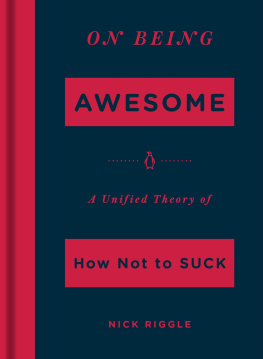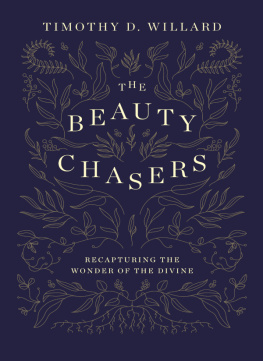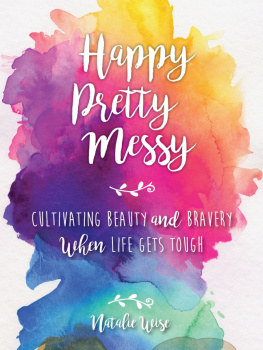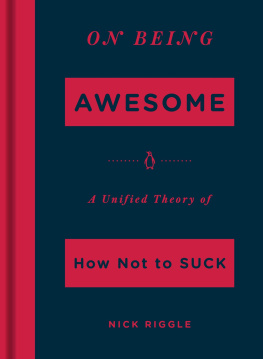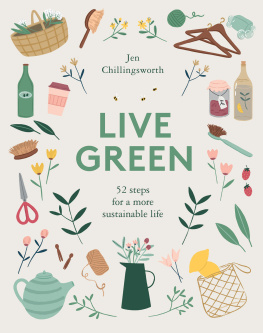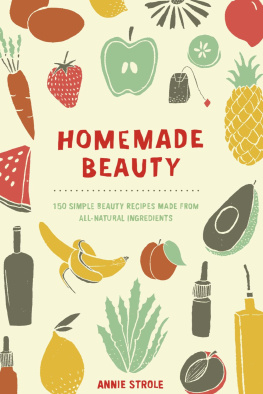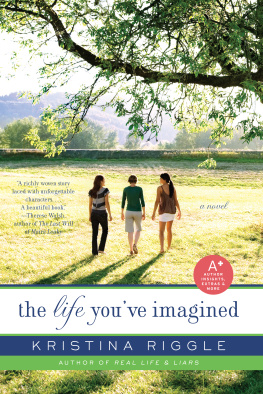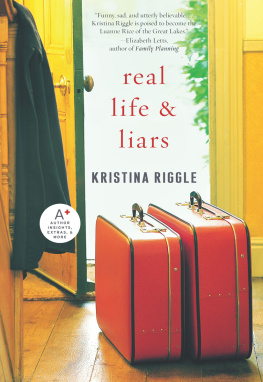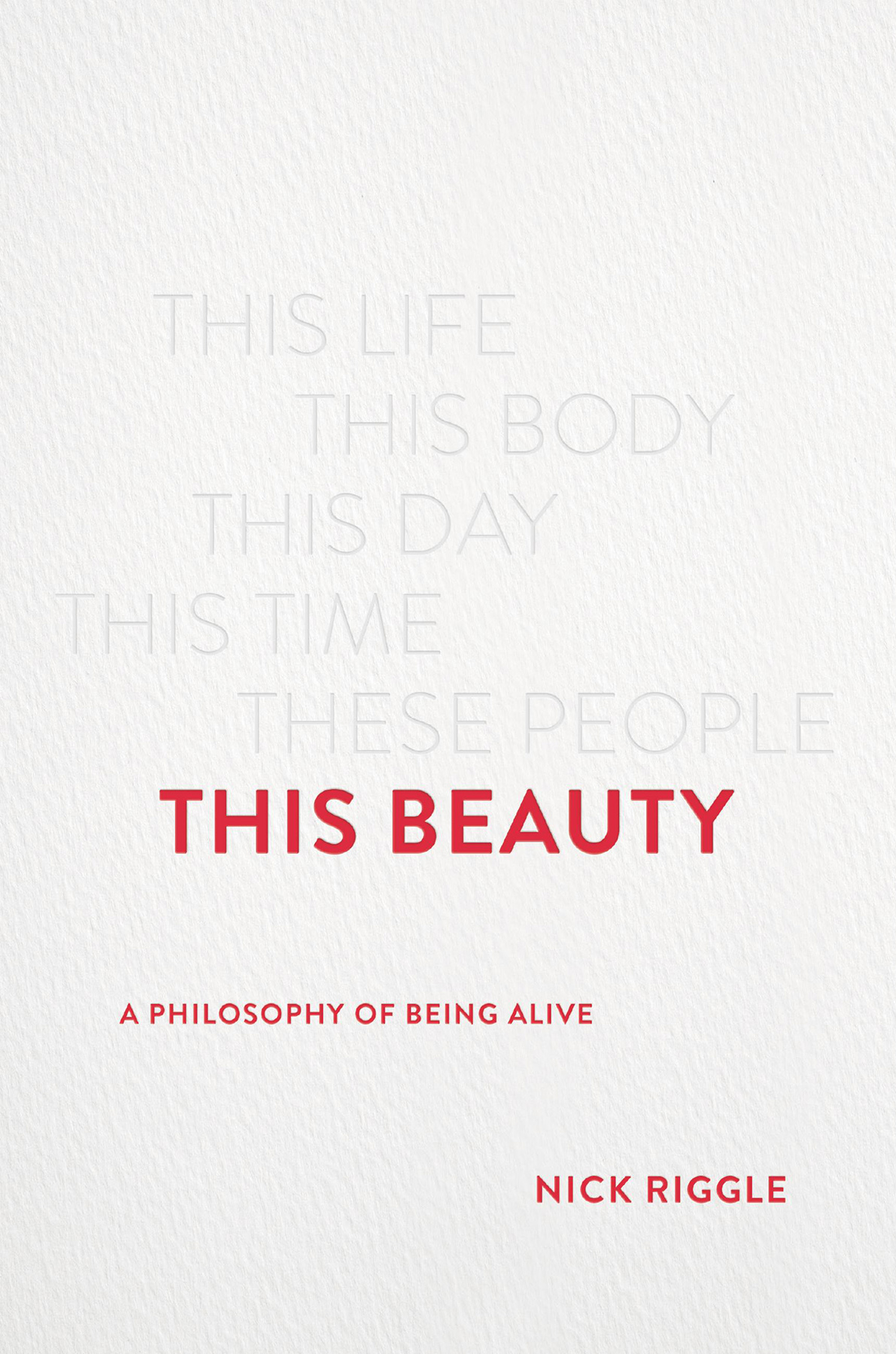Cover copyright 2022 by Hachette Book Group, Inc.
Hachette Book Group supports the right to free expression and the value of copyright. The purpose of copyright is to encourage writers and artists to produce the creative works that enrich our culture.
The scanning, uploading, and distribution of this book without permission is a theft of the authors intellectual property. If you would like permission to use material from the book (other than for review purposes), please contact permissions@hbgusa.com. Thank you for your support of the authors rights.
The Summer Day by Mary Oliver. Reprinted by the permission of The Charlotte Sheedy Literary Agency as agent for the author. Copyright Mary Oliver 1990 with permission of Bill Reichblum.
Published by Basic Books, an imprint of Perseus Books, LLC, a subsidiary of Hachette Book Group, Inc. The Basic Books name and logo is a trademark of the Hachette Book Group.
The Hachette Speakers Bureau provides a wide range of authors for speaking events. To find out more, go to www.hachettespeakersbureau.com or call (866) 376-6591.
The publisher is not responsible for websites (or their content) that are not owned by the publisher.
Names: Riggle, Nick, author.
Title: This beauty : a philosophy of being alive / Nick Riggle.
Description: First edition. | New York, NY : Basic Books, [2022] | Includes bibliographical references and index.
Identifiers: LCCN 2022013477 | ISBN 9781541675506 (hardcover) | ISBN 9781541675513 (ebook)
Subjects: LCSH: Life. | Aesthetics
One day I sort of woke up and found myself here. Not here, writing this book, right here and now. But here. In the biggest sense. Here on planet Earth. With a beating heart. With a warm, animate body. Consciousness alight. Time ticking. I had been alive for a while. All of a sudden I was awake.
I didnt ask to be here. I didnt consent to this life. No one spoke with me before all of this to see whether I would mind being a bounded, conscious, material thing thrust into a delicate, short life on some spinning space orb. In some galaxy. In some universe. In some place. Yet here I am.
And there you are.
Hi.
I was thirteen years old when I woke up, just finishing the eighth grade, about to enter, and drop out of, high school.
The early years of my life had passed. My dad was an explosive Vietnam War veteran with undiagnosed PTSD. He couldnt keep his cool, struggled to keep his jobs. Mom held an early-morning newspaper route and worked at Dominos Pizza and our church. Neither of them had college degrees. Together, they had four boys.
I knew, from an early age, that I didnt want to spend time in my home, a den of tensions and uncertainties. I spent hours alone in the mysterious backyard, crouching low among crowds of dandelions, eating some, marveling at the blast of acid and waves of salivamy three-year-old drool a fine distraction from the bursts of anger and confusion inside. Outside, I could mold dirt, build forts, shoot my slingshot, hang with my imaginary friend Van, and lose myself in fantastical tasks and worlds. Inside, there was no hiding from the trembling reality of love trying and failing to shape our nascent family into something coherent, to express its beautiful selfof love bruised by paroxysms of anger and fear.
All that time in the backyard, playing guns with neighborhood kids, riding bikes, catching crawdads, going to the Boys & Girls Club, I wasnt just a boy being a boy. I was a boy building a world he could agree to because it was one that he made to his own liking. By age thirteen I had already spent the best part of a decade building and inhabiting my own world.
Then I woke up.
I realized that I hadnt agreed to this wholeass thing . And I didnt really like where I had ended up. I was still too young to understand that I was, only in a cosmic sense, fucked.
A man in India, Raphael Samuel, planned to sue his parents for giving birth to him. He didnt consent to being born, so he figured he deserved lifelong compensation for all the suffering he had, and would have to, endure. His parents, both lawyers, pointed out that if they could have asked him if he wanted to be born, they would have. They couldnt have, obviously, so they arent to blame for failing to do something they could not have done.
But if you could reasonably expect that your child would agree to existence when you are able to ask, then would that be agreement enough? You would have to make very sure theyd agree. And with what confidence would you do that?
Some think that confidence is assured because life itself is a wonderful gift.
The poem The Lanyard by Billy Collins compares a young boys sincere gift to his mom of a plastic lanyard to the gift of life itself. Parents give us life. They nurse us, love and comfort us. They teach us to walk, swim, talk, and read. They teach us how to eat, how to dress, how to clean up and help out around the house. They introduce us to the world. And in return for this immense gift, little Billy offers his mother the worthless plastic lanyard The poem ends by offering another gift: the admission that as a boy he was absolutely sure that the useless lanyard would be sufficient repayment for life.
The poem plays with the thought that the gift of life is the most immense, the gift of all gifts, that nothing can repay. The confident offering of a plastic lanyard for life itself exposes the infinite distance between the two, and this exposes the bond, across that distance, between a knowing, loving parent and their precious, innocent child. In this way, the sincere giving of the lanyard is the perfect gift. Anything more would close the gap, and so would be less, and anything less than a plastic lanyard would be nothing.
If life is a gift, it is one that requires more giving. Parents also nurture that life, shape it into something, and hopefully offer their child the most precious gift they can give: some idea of how to live the life they were given.
But the idea that life is a gift given by parent to child is curious. Gifts neednt be repaid. Thats the whole idea of a gift. It is gifted.
If life really is a gift, then, you would seem to owe your parents nothing. But, as parents tend to point out, you dont owe them nothing; they expect rather a lot for having given the gift of lifeat the very least, that you live your life and make something of it. And if life is not only a gift but such an immense gift that it can never be repaid, why expect payment?
From the childs perspective, it becomes very clear very fast that this gift comes with several caveats and burdens. And you learn early on that gifts like that arent very good.
It seems that both parent and child are not entirely comfortable with the thought that life is a gift.
Some think that the metaphor of a gift suggests too generous a mode of exchange. Arthur Schopenhauer writes, Far from bearing the character of a gift, human existence has entirely the character of a contracted debt. But any debt has to be legitimate, and if I did not consent to my existence, then whom or what could I be indebted to? Schopenhauer tries to explain:


